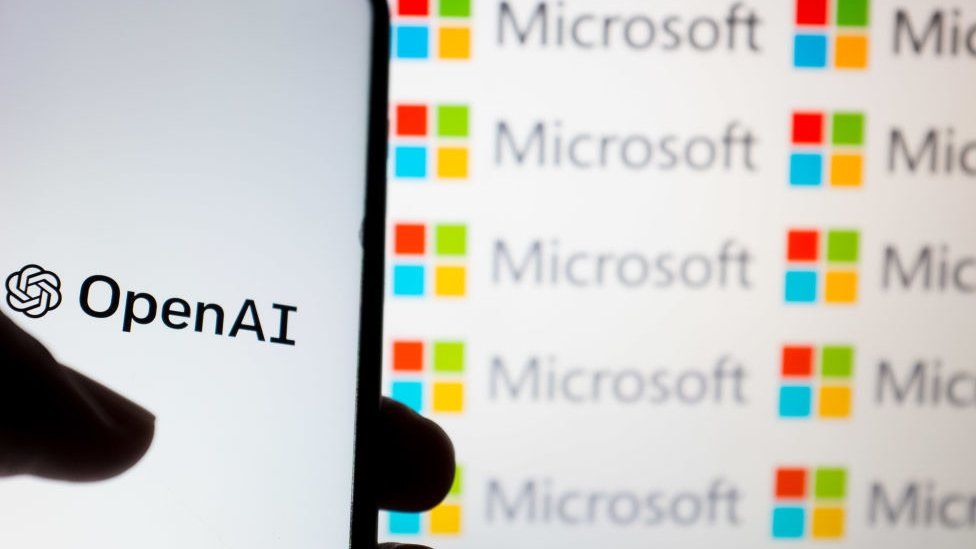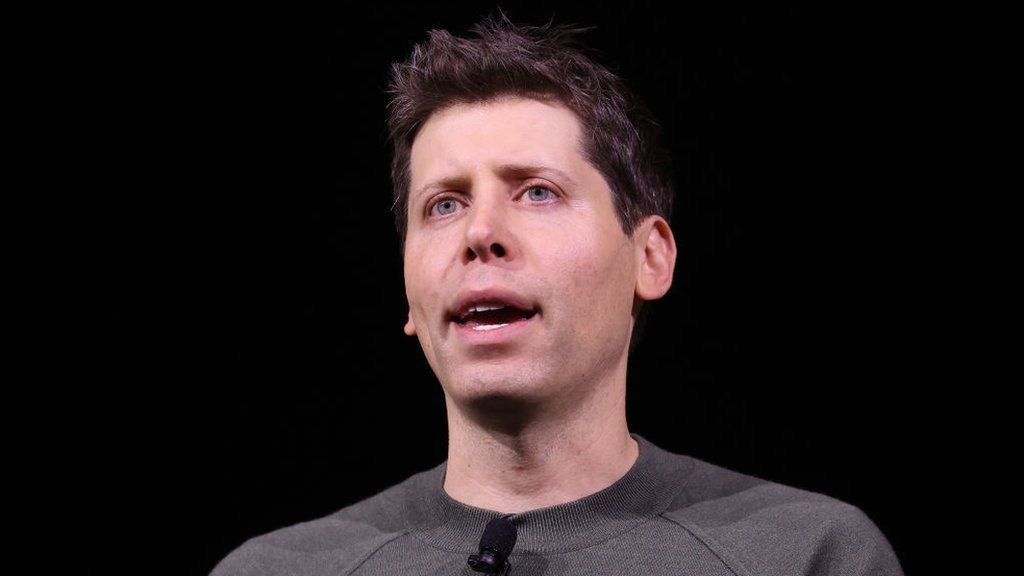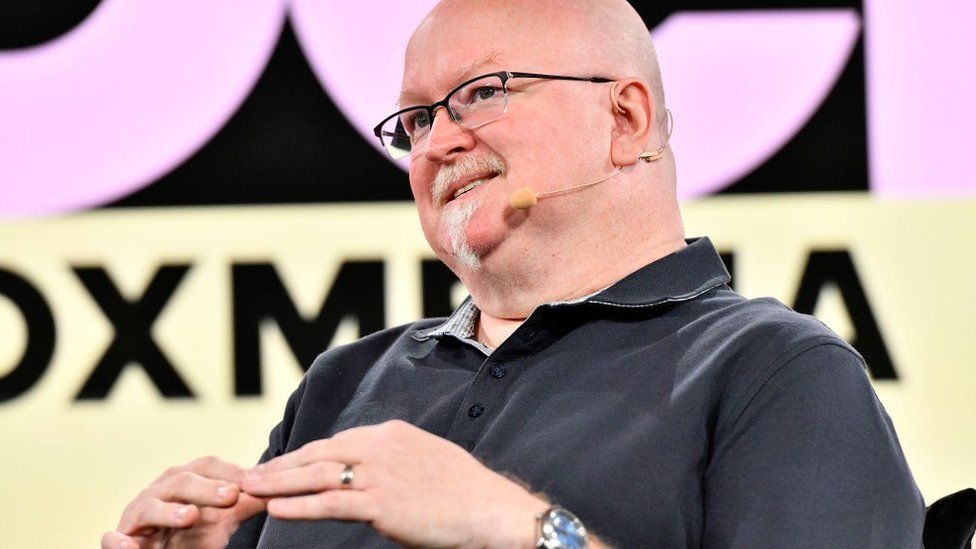Microsoft’s links with OpenAI to be examined by competition watchdog

The UK’s competition watchdog is to look at whether Microsoft’s high-value partnership with OpenAI could be considered as a merger.
The Competition and Markets Authority is examining whether the US tech giant’s work with OpenAI could affect the AI market overall.
Microsoft, which owns 49% of OpenAI, said it had “preserved independence” for both firms.
But the relationship has come under focus after recent upheaval at OpenAI.
Last month, OpenAI, which is best known as the creator of ChatGPT, was plunged into chaos when its boss Sam Altman was suddenly fired.
After Mr Altman’s sacking, Microsoft then offered him a job leading a new advanced AI research team, before he was reinstated at OpenAI following an appeal from employees.
During the drama, a spotlight was cast on how commercial competition is shaping the development of AI systems and the pace at which the technology is moving.
It caused confusion about the future of the start-up, while Microsoft chief executive Satya Nadella had said previously that governance at the firm needed to change.
The CMA said that it was asking for comments, partly “in light of these developments”.
The watchdog is questioning whether the partnership has resulted in an “acquisition of control”, whether an effective merger has taken place and if this could affect competition in the UK.
It has asked third parties for their comments on the tie-up and could launch a probe if it feels it is necessary.
Sorcha O’Carroll, senior director for mergers at the CMA, said: “The invitation to comment is the first part of the CMA’s information gathering process and comes in advance of launching any phase 1 investigation, which would only happen once the CMA has received the information it needs from the partnership parties.”
In response to the announcement, Microsoft said that its partnership with OpenAI has “fostered more AI innovation and competition”.
Vice chair and president of Microsoft Brad Smith said that the only thing that has changed is that it “will now have a non-voting observer on OpenAI’s board”.
This means that it will have access to confidential information, but it will not be able to vote on matters like choosing directors.
He added that the tech giant, which also came under scrutiny from regulators over its acquisition of Call of Duty maker Activision Blizzard, will work closely with the CMA to provide all the information that it needs.
Mr Smith has previously denied that the recent drama witnessed at OpenAI was due to concerns around the safety of the technology being developed.
Fears that AI was going to overtake humans in the next year were unfounded, he said recently during an event in London.
“There’s absolutely no probability that you’re going to see this so called artificial general intelligence where computers are more powerful than people come in the next 12 months. It’s going to take years, if not many decades.”
Mr Altman was a co-founder of OpenAI and became the face of its ground-breaking chatbot ChatGPT after it launched last year.
He secured a significant funding boost to the tune of $13bn (£10bn) from Microsoft, which helped catapult the business.
In an interview with the Wall Street Journal (WSJ), one of the four board members who fired Mr Altman said that its goal was to “strengthen OpenAI and make it more able to achieve its mission.”
Helen Toner, an academic and now former board member, did not answer questions about her interactions with Mr Altman, but said that the move was due to a “lack of trust” in the executive.
There was reportedly a clash between the two after her work on an AI safety paper was published, which suggested that other tech companies had fast-tracked AI products in a bid to keep up with OpenAI.
She told the WSJ: “OpenAI is a very unusual organization, and the non-profit mission – to ensure [artificial general intelligence] benefits all of humanity – comes first.”
Related Topics
-
-
30 November

-
-
-
22 November

-

